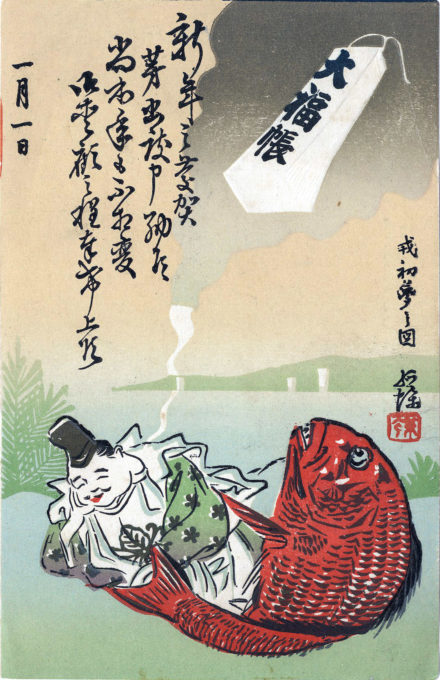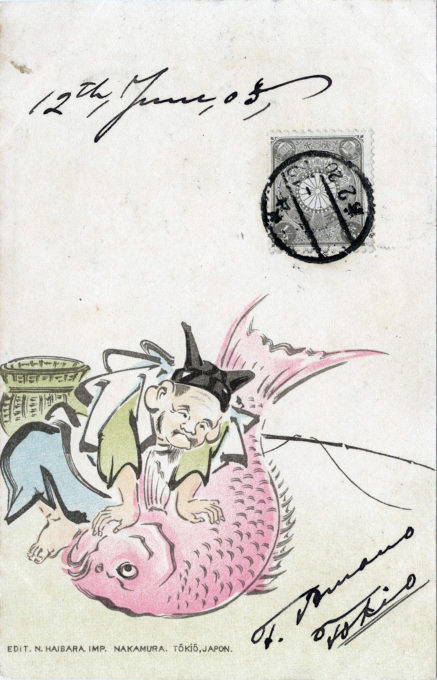
Ebisu (God of Good Fortune), New Years card, c. 1920. Ebisu is one of the Seven Gods of Fortune, and the only one of the seven to originate purely from Japan without any Hindu influence. He is often depicted wearing a tall hat (kazaori eboshi) holding a rod and a large red sea bream or sea bass. Jellyfish are also associated with Ebisu and fugu restaurants of Japan will often incorporate Ebisu into their motif.
See also:
Seven Lucky Gods of Japan, c. 1920.
Yebisu Beer, Tokio Brewery No. 1, Meguro, Tokio, c. 1900.
“Ebisu is the god of good luck as well as of fisherman. He is usually depicted with a fish in his left hand and a fishing rod in his right hand, although this last item can vary. The favorite god of fortune of the Japanese, being the fish lovers they are, is Ebisu.
“Toward the end of the nineteenth century, Japan Beer (a company that would eventually change its name to Sapporo) launched a beer called Yebisu (an archaic spelling of Ebisu) in honor of the god. At the time, Japan Beer had most of its factories in the southwest of Tokyo, and they decided to build a train station called Ebisu to improve their distribution system. Today, Ebisu station is the next one after Shibuya on Tokyo’s Yamanote Line.
“Besides being the god of fisherman, Ebisu also became the god of merchants and farmers, who usually have an Ebisu figurine in the kitchen next to Daikokuten.”
– A Geek in Japan: Discovering the Land of Manga, Anime, Zen, and the Tea Ceremoney, by Hector Garcia, 2012


